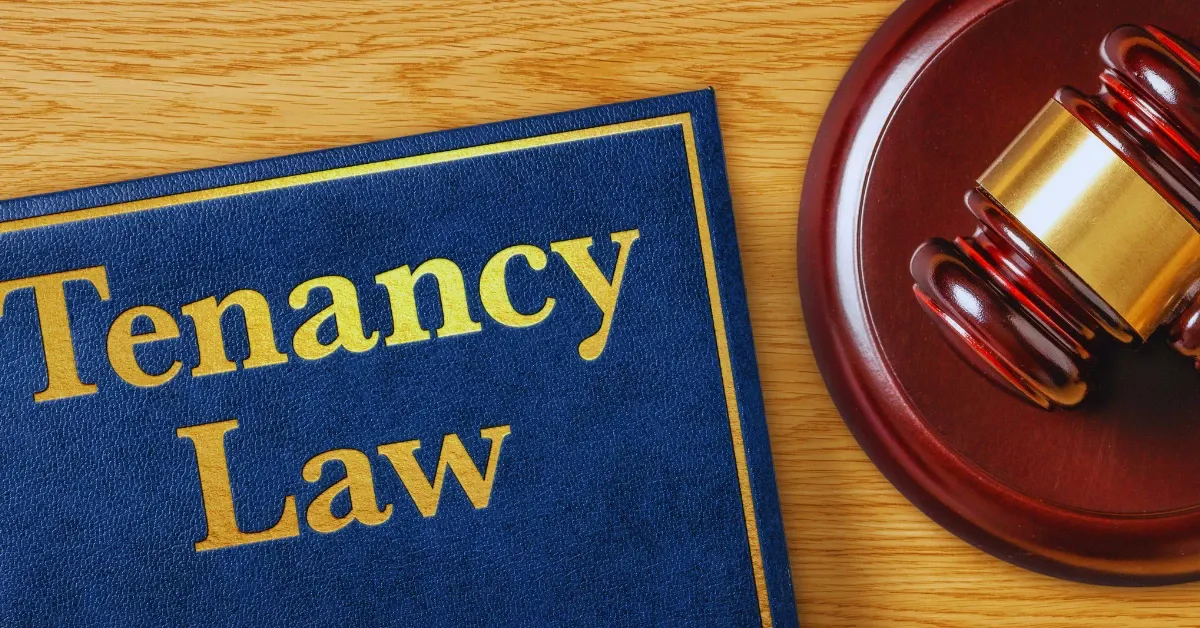How Much Notice to Give Landlord Quebec? Rental Awareness
In Quebec, tenants must give their landlord three months’ notice before terminating a lease. This notice must be given in writing and should include all necessary information such as the intended move-out date.
This means that if a tenant decides to leave their apartment at the end of July, they must provide written notice to their landlord no later than the end of April.
Providing the proper notice can help to ensure a smooth transition and a positive reference from the landlord in the future.

Understanding Quebec’S Tenancy Laws

Overview Of Tenancy Laws In Quebec
Quebec’s tenancy laws are unique, and as such, it is essential to know them if you intend to rent in this province. Here are some vital elements of the tenancy laws in Quebec:
- The régie du logement is the governing body over residential tenancies in Quebec. It is responsible for all aspects of tenancy agreements, such as rent increases and disputes.
- Tenants have a particular set of rights in Quebec, including the right to privacy, the right to peaceful enjoyment of the rented premises, and the right to safe and clean living conditions.
- Landlords have the right to establish and collect rent, but they must do so within specific legal restrictions and regulations.
Relevant Laws And Regulations For Tenants
In Quebec, there are several relevant laws and regulations for tenants, including:
- The civil code of Quebec outlines the legal obligations and responsibilities of landlords and tenants and their respective rights in any tenancy agreement.
- The residential tenancies act provides the rules and regulations for all residential tenancies in Quebec, including lease agreements, rent increases, repairs and maintenance, and eviction procedures.
- The act respecting the régie du logement establishes the powers and duties of the régie du logement, including dispute resolution and mediation services.
Minimum Requirements For Tenancy Agreements In Quebec
To have a legally binding tenancy agreement in Quebec, the agreement must meet specific minimum requirements, including:
- The lease must be in writing and include essential information such as the tenant’s name, the landlord’s name, the rental address, the rent amount and payment frequency, and any applicable terms and conditions.
- The tenancy agreement must also include a mandatory move-in inspection report detailing the condition of the premises before occupancy.
- Quebec law states that the lease agreement must conform to specific legal provisions, including the presence of mandatory clauses such as the obligation to pay rent and the obligation to respect the rules of the building.
Giving Notice To Your Landlord In Quebec
Transitions in life are inevitable, and sometimes they involve relocating to a new place.
If you are a tenant residing in Quebec and you are currently in the process of moving out of your rental unit, you need to know the proper procedure for giving notice to your landlord.
Let’s discuss the different types of notices you can give, the legal requirements for how much notice to give, and the consequences of failing to provide the appropriate notice.
Types Of Notices: Lease Termination, Rent Increase, Repairs

Lease Termination
You can give notice of lease termination when you choose not to renew your current lease once it expires.
As a tenant in Quebec, you are permitted to give notice of lease termination at any point during your tenancy, provided that proper notice is given.
Rent increase
If your landlord intends to increase your rent, they must provide written notice and follow the legal guidelines, including the amount of notice required and the maximum amount the rent may be increased.
Repairs
If your rental unit requires repairs, you can provide written notice to your landlord indicating the nature of the repairs needed.
Your landlord must then respond within a set time to make the necessary repairs.
How Much Notice To Give: Timelines And Legal Requirements
Lease Termination
If you wish to terminate your lease agreement at the end of the lease term, you must provide written notice to your landlord at least three months before the end of your lease.
If you wish to terminate in the middle of the lease term, you must provide written notice of at least one full rental period before you intend to move out.
Rent increase
Your landlord must provide written notice of a rent increase at least three months in advance of the beginning of the new rental rate.
Repairs
There is no set timeline for repairs. However, tenants must allow landlords sufficient time to carry out necessary maintenance or repair work.
Consequence Of Failing To Provide Proper Notice
Failure to provide proper notice can be costly. If you do not give sufficient notice to terminate your lease agreement, you may be held liable for the cost of the rental unit until a new tenant is found.
If you do not provide adequate notice of a rent increase, your landlord cannot legally increase your rent.
Failure to notify your landlord of necessary repairs may result in a delay in repair work and potential damage to the rental unit.
As a tenant in Quebec, you have both rights and responsibilities.
If you are in the process of moving out of your rental unit, it is essential to provide the appropriate notice to your landlord as required by the law to avoid any potential consequences.
Resolving Disputes With Your Landlord In Quebec
Resolving disputes with your landlord in Quebec can be tough, especially if the issue has escalated. Here are some tips that may help you resolve the dispute effectively:
Mediation And Other Dispute Resolution Methods In Quebec
- Mediation is a beneficial way to resolve issues with your landlord without going to court. In Quebec, the régie du logement offers free mediation services to help tenants and landlords solve problems before they reach the courtroom.
- Other methods of resolving disputes with your landlord in Quebec include arbitration and conciliation, but they are not as commonly used as mediation.
What To Do If Your Landlord Disputes Your Notice Or Fails To Comply
- If your landlord disputes your notice, it is important to ensure that you have properly followed all the steps for giving notice. The régie du logement has specific rules that must be followed, so ensure that you have adhered to them.
- If your landlord fails to comply with your notice, you can file a complaint with the régie du logement. The régie du logement can order your landlord to follow through with the notice, and if they don’t comply, they may be subject to penalties.
Legal Remedies For Tenants In Case Of Unlawful Eviction
- In Quebec, tenants who have been unlawfully evicted can file a complaint with the régie du logement. If the régie determines that the eviction was illegal, they may order your landlord to let you back into the apartment or provide you with financial compensation.
- Additionally, if your landlord attempts to evict you without following proper legal procedures, this is considered an unlawful eviction. If this happens, do not leave the apartment and immediately contact the régie du logement for assistance.
Frequently Asked Questions On How Much Notice To Give Landlord Quebec
How Much Notice Do I Need To Give My Landlord In Quebec?
As per Quebec’s civil code, a tenant is required to provide written notice at least one month before moving out.
Can I Give Less Than A Month’S Notice To My Landlord?
You can give less notice, but you will be liable to pay rent for the remaining days of the notice period you did not provide.
What Happens If I Do Not Give Any Notice Before Moving Out?
If you do not give any notice before moving out, your landlord can hold you responsible for the rent until the lease period ends.
Can My Landlord Ask For More Notice Than One Month?
No, your landlord cannot ask for more notice than one month before the termination of the lease agreement as per the quebec residential tenancies act.
Conclusion
When moving out in Quebec, it’s wise to be prepared. Remember, a full calendar month’s notice is your safest bet.
This way, you respect both your landlord’s expectations and provincial regulations, ensuring a smoother transition to your next home.
Reference
https://www.quebec.ca/en/homes-and-housing/renting/rights-and-obligations-of-the-lessor-and-lessee